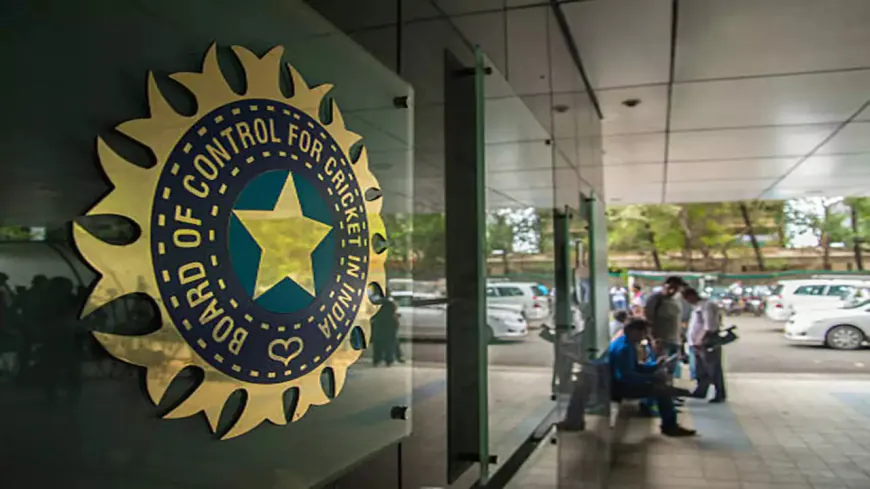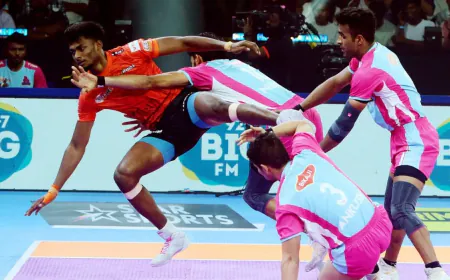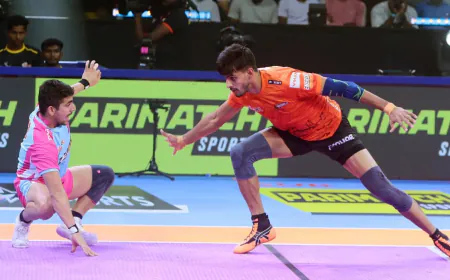BCCI Stands Strong on SOPs-No Giving In on Team Policies
The BCCI is adamant about its Standard Operating Procedures (SOPs), not willing to flex team policies under pressure from outside. This move upholds discipline and order in Indian cricket.

The Board of Control for Cricket in India (BCCI) has stood firm in its position on the Standard Operating Procedures (SOPs) that regulate the Indian cricket team. In spite of some flak, more specifically regarding prohibition on family accompanying the team abroad, the board has announced that the policies won't change.
A Policy Founded on Team Camaraderie
The BCCI had a formal set of SOPs after the Border-Gavaskar Trophy in Australia. Among the most discussed aspects of these rules was the ban on having family members along on foreign tours. Under the policy, wives and children under 18 can accompany the players for up to two weeks on tours that are longer than 45 days. This choice was experimented with in the recent Champions Trophy, and it elicited mixed reactions from players and stakeholders.
The board, though, is firm in its stance. "At this point, the existing policy will be intact because it is of utmost significance to the country as well as to our organization, the BCCI," Board Secretary Devajit Saikia told Cricbuzz in an interview. He stressed that such rules have been formulated to guarantee team discipline, unity, and professionalism while playing for India at the international level.
Player Reactions-A Divided Opinion
Although the board considers the policy to be important for keeping the focus, the displeasure has been voiced by some players. Indian star cricketer Virat Kohli spoke on the issue recently, pointing towards the emotional difficulties of long tours away from family. "If you ask any player, 'Do you want your family to be around you all the time?' the answer will be yes. I don't want to go to my room and just sit alone and sulk. I want to be able to be normal. And then you can really treat your game as something that is a responsibility. You finish that responsibility, and you come back to life," Kohli explained at an event in Bengaluru.
While Kohli’s viewpoint reflects the sentiments of many players who spend months away from home, the BCCI maintains that the policy applies uniformly to everyone in the Indian contingent, including players, coaches, managers, and support staff. "The BCCI recognizes that there may be some resentment or differing opinions, as in a democratic setup, people are entitled to express their views," Saikia acknowledged.
Long-Standing Tradition, Not a Sudden Change
Contrary to the perception that this policy was newly formulated, the BCCI explained that such rules have been in place for decades. "This policy has not been made overnight; it has been there for decades, going back to the playing days of our president, Roger Binny - and perhaps even before that," Saikia said.
Over the years, the BCCI has progressively updated these SOPs to keep pace with the changing nature of the game as well as the growing requirements of international tours. The current version incorporates more provisions than family curbs, including areas under practice sessions, match schedules, tours, baggage allowance, and team movement. The board is convinced that these guidelines are important for team bonding and strict adherence to the game.
Though the board is adamant in its position, it has not completely closed its mind to making exceptions in extraordinary situations. Saikia explained that the BCCI has already relaxed the length of time family members can join players on international tours. Additionally, there are provisions for the relaxation of rules under certain conditions, but this would be based on a formal procedure.
"The BCCI has raised the period of stay of players' family members on overseas tours, with possibilities of relaxing norms in exceptional situations, but in a proper way," Saikia said. This means that though the board believes in discipline, it is not rigidly inflexible and will consider specific cases when the situation demands it.
The controversy surrounding the presence of families during tours is not a new issue in global cricket. Numerous teams across the globe have tried various policies to balance the need to keep a player's mind stable and ensuring that performance is kept at the forefront. Although some feel that the inclusion of families on tour boosts a player's morale and stability, others think that it might cause distractions and undermine team bonding.
BCCI’s approach leans towards the latter, prioritizing a structured environment that keeps the team focused on the game. However, with modern cricket becoming increasingly demanding, discussions around player welfare and mental health are gaining traction. It remains to be seen whether the board will revisit these policies in the future, given the evolving landscape of professional sports.
Conclusion
For the time being, the BCCI has made a definite line: the SOPs are not going to change. As much as the players may differ in their views, the board is adamant that these are steps in the best interests of Indian cricket as a whole. With international cricket moving ahead, the debate regarding maintaining professional responsibilities and personal life will continue to exist. But any policy change will only happen through thoughtful consideration and a well-defined process so that the integrity and discipline of the team are not compromised.





















































